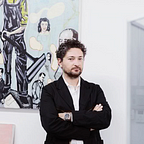Well, a year has gone by, and I’m still a nomad.
At first, I thought I’d do it for a couple of months, those went by and I had no urge to settle down, quite the opposite. The more I got to see all of the different housing models and how people currently lived, the more I wanted to learn.
It started out in a pretty crazy way, somehow I wanted to be so free that I literally didn’t even plan one week ahead. Not on my flights or on my sleeping arrangements. I would just be wherever I needed to be tomorrow. For someone with offices in three different cities, on three different time zones, and working on projects in six different cities this might seem quite chaotic, but I actually found it quite comforting.
For a whole year, I would just book a hotel or airbnb for three or four days at a time, so very often I found myself walking through the City suitcase in tow. I found the idea of being able to fly wherever I wanted whenever I wanted quite practical. It’s a very relaxing feeling to know that absolutely everything you need fits within a suitcase (although most of what I own is in a storage unit).
And it was this way that I got to experience how a lot of young people live nowadays. I don’t think I had even heard of the term digital nomad until I started to live with them. I stayed in Miami at Roam, a co-living startup focused on shorter term stays. There, I met people that had not had an apartment lease for over a year. Did they miss having a home? Not one of them, their lives seemed so exciting, they would be in a city for one or two months and then move on to the next one.
In NYC I stayed at Outsite, a startup that does smaller properties around the world catering to digital nomads. For about the same monthly rent that you’d spend on your own apartment, you get a furnished room in a ten bedroom apartment with shared bathrooms and kitchen. What’s the upside of having your room instead of your own apartment? You get to move on to the next city whenever you want to.
We are part of a much more mobile society, which I think is one of the greatest advantages of the moment we’re living in. I’ve lived in a very mobile way for most of my adult life, but finally, it is starting to become a much bigger trend. The world is so connected that for a large part of the population, home can quite literally be anywhere.
As I write this, I’m sitting in a Blue Bottle coffee shop in Williamsburg, quite similar to the one in Roppongi in Tokyo from which I worked in the mornings for about a week that I was there over New Year’s. I stayed at a co-living building where I met a chinese-american couple that were relocating to Tokyo from Silicon Valley. She got a new job at Ideo, while he was going to be remotely working from Tokyo. Another couple I met, from India, were relocating from the UK,where they had lived for the last couple of years. They all moved for the same reason, wanting to experience a different culture.
What is definitely quite clear from staying in private rooms at random people’s apartments through airbnb is that housing is a struggle. In most densely populated urban environments, it has become almost impossible for a young professional to be able to afford, or even go through the process of leasing their own apartment.
It’s been an enriching experience, over the past year I’ve slept in a pod on a bus travelling from San Francisco to LA, in rooms with no windows, in rooms with amazing views of Central Park, on inflatable matresses, Villas in Europe, futons in millenials living rooms and high end design hotels. According to Hotel Tonight, I’m a pro, level 12, having slept 63 nights in 24 different cities.
Everyone I tell that I don’t have an apartment, thinks I’m kind of crazy, but this has been an amazing journey. There wouldn’t have been any other way to know first hand the problem that most young people are facing. And I probably would not have had the passion I now have to solve them.
